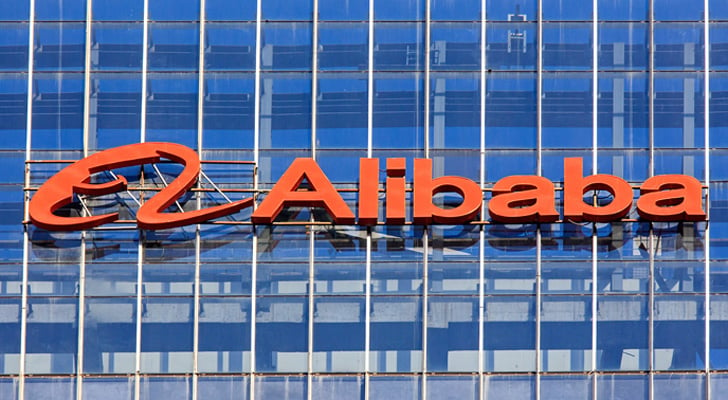One of the common refrains from Alibaba Group Holding Ltd (NYSE:BABA) detractors is that it’s a middleman owning very little of its inventory or not possessing the infrastructure necessary to be one of the world’s most successful retailers. Alibaba stock remains resilient, though.
“Count me as a doubter as well,” wrote InvestorPlace’s Will Healy March 2. “The stock built its reputation as a middleman. It has never invested in the warehouse and logistics infrastructure, unlike Amazon or its domestic peer JD.Com Inc (ADR) (NASDAQ:JD).”
I’m a fan of all three in large part because of their dynamic leaders. If I were to rank the trio of companies in order of potential, JD might be an even better investment than both Amazon.com, Inc. (NASDAQ:AMZN) and Alibaba stock.
That said, if you can afford to own all three, that’s what I’d recommend.
For those who might be concerned about Alibaba’s accounting practices, as Healy is, a better solution might be to buy the Amplify Online Retail ETF (NASDAQ:IBUY). It owns 39 companies that obtain at least 70% of their revenue from online sales; JD, AMZN and Alibaba stock are held by the $252-million portfolio.
Ma is Building a Business with Alibaba Stock
The point I wanted to make is that Jack Ma is building a business that’s very similar to Amazon in the types of businesses it’s buying.
In December, Alibaba acquired Alibaba acquired 36% of Sun Art Retail of Sun, a Chinese version of Walmart Inc (NYSE:WMT) stores where online meets offline in pursuit of every household dollar of spending it can attract.
Yes, Alibaba prefers to remain in the middle helping merchants sell their products and take a cut for its part in the transaction; but what’s wrong with that?
At the end of December, Alibaba had just $5.3 billion in long-term bank debt and another $13.6 billion in unsecured senior notes compared to $33.8 billion in cash and short-term investments.
Its free cash flow on an annualized basis is $18.6 billion or approximately 48% of its annualized total revenue of $38.5 billion. Meanwhile, over at Amazon, its free cash flow is 4% of its 2017 revenue of $177. 9 billion.
Now, I’m not about to get into an X’s and O’s discussion about why both companies’ cash flows are the way they are except to say that Amazon lives on razor-thin margins which means its bottom line needs lots of top-line growth to feed the beast (cost of inventory).
The gross margins that underpin Alibaba stock are almost double Amazon’s precisely because it’s avoided the whole inventory issue. However, as it gets more involved with brick-and-mortar retail, the gap between the two will shrink and ultimately, it and Amazon will be two sides of the same coin.
Good vs. Bad Conglomerates
If you’ve been following the story of Ring, the wi-fi camera/doorbell company Amazon’s said to be buying for more than a billion dollars; you’re probably aware of its history.
It couldn’t get a deal from appearing on the Shark Tank in 2013, but it gained enough exposure from the appearance to put a fire under revenue and probably on Amazon’s radar.
Yes, Amazon and Alibaba are building conglomerates with seemingly unrelated businesses — doorbells and grocery items hardly seem to mesh — but as I recently stated about Amazon, both are after every household dollar of spending they can get.
Sure, they might be going about it in different ways, but at the end of the day, Amazon and Alibaba want you to do everything through their businesses.
The problem with General Electric Company (NYSE:GE) is that it is an industrial conglomerate that brought together a group of businesses that don’t necessarily mesh with its customers. For example, companies who need jet engines don’t need dishwashers, etc.
Amazon and Alibaba are building consumer-facing conglomerates which are much better at meshing together all of their products and services in a coordinated offering.
Bottom Line on Alibaba Stock
I get the concerns about Alibaba’s web of companies and intricate financials. If you can’t get past that, you definitely shouldn’t own BABA stock. However, if you can let that slide, the fact Alibaba stock is looking more like Amazon stock as every day passes is good news for investors, not bad news.
As of this writing, Will Ashworth did not hold a position in any of the aforementioned securities.

